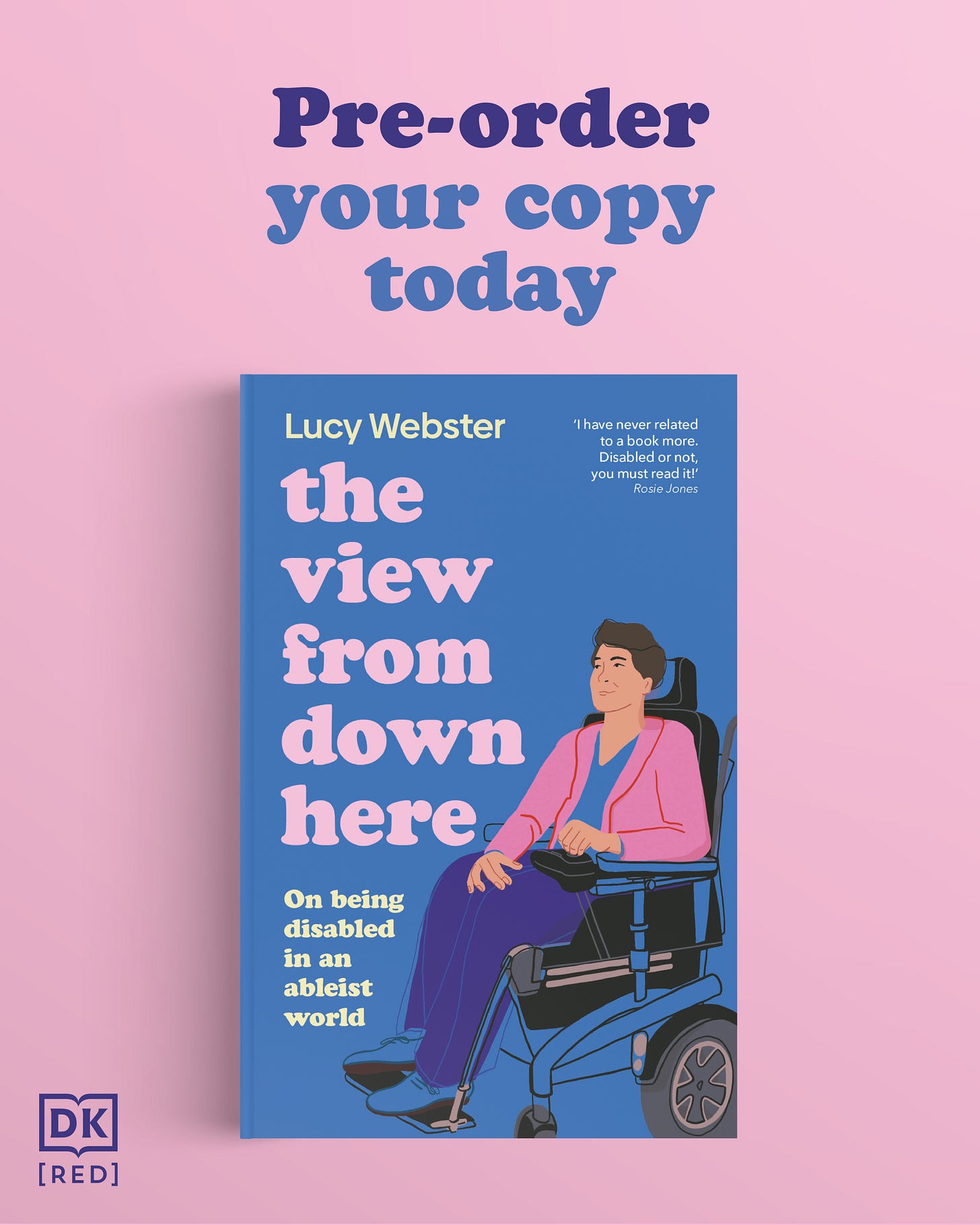Ask me your awkward questions about the book
Hello,
Thanks for all your support on the paperback announcement a few weeks ago.
Please do keep pre-ordering and sharing! It really makes a difference.
As I get stuck in to the promo side of things, I’ve been thinking a lot about what’s in the book and what I want to talk about this time around. And I’ve been reflecting on the conversations I’ve had about it since it first came out.
Firstly, I am really glad that nondisabled people in particular have really engaged with the dating chapter. It was bloody hard to write but it felt worth doing if it started a conversation that needed to be had, and it did! It’s been great to see people re-examine what worth in relationships looks like, confront their own biases around the desexualisation of disabled women and, frankly, be a bit horrified by some of my experiences. Sometimes we need to shock people into change.
Still, it’s interesting to me that about 60% of my conversations with nondisabled people about the book have been about dating (this skyrockets to about 90% if they find out I now date girls). The other 40% of conversations have been, variously, about body image, accessibility, and making friends at uni. And, look, I get it. These things are relatable. And they are important - that’s why they’re in the book!
What makes this interesting is not so much what does get talked about as what doesn’t. Very, very few nondisabled people have brought up the care chapter, even though I think it’s one of the best. Even fewer want to talk about motherhood. (Not coincidentally, these are the two chapters disabled people most want to talk about. Funny, that.) And actually almost no one has asked about the intersection of ableism and sexism, which is a little odd because it is in fact the entire subject of the book.
On the one hand, I really do get this, too. Care and motherhood and a stinging critique of modern feminism are probably more awkward to chat about than my bad dates. But - I don’t know how to say this - that is sort of the whole point. I wrote about them so that we’d talk about them and, eventually, they’d stop being awkward and start being normal. That’s how this works.
All of which is to say, please ask me your awkward questions or tell me what you think and feel about the less-easy bits of the book. I am more than happy to talk about dating (it’s a whole lot more fun now) but I would love to talk about everything else too.
Here’s to more conversations,
Luce
Praise for The View From Down Here
“A vital call to arms that demands we confront ableism at every level of society. Lucy Webster’s work is fierce, unapologetic, and essential - this is the blueprint for a world where all women belong.” - Sophie Morgan, TV presenter
“I have never related to a book more. Disabled or not, you must read it! Amazing. I love it.” - Rosie Jones, comedian
“A sharp, funny & deeply beautiful memoir that doesn’t shy away from the realities of disabled life and instead takes power from them.” - Ruth Madeley, actress
“A groundbreaking memoir that takes the deeply personal and makes it fiercely political. I loved it.” - Frances Ryan, journalist
“In a world that gives disabled women endless reason to believe we don’t actually belong, The View From Down Here plants a flag in the dirt and insists that we fundamentally do. Lucy Webster’s voice builds that belonging for us as she allows the fullness and contradiction of her life experience to blossom on the page – stories of friendship and loneliness, anger and joy, reliance and freedom, grief and liberation, despair and hope. I felt my own sense of belonging dig deeper roots as her stories washed over me.” - Rebekah Taussig, author

